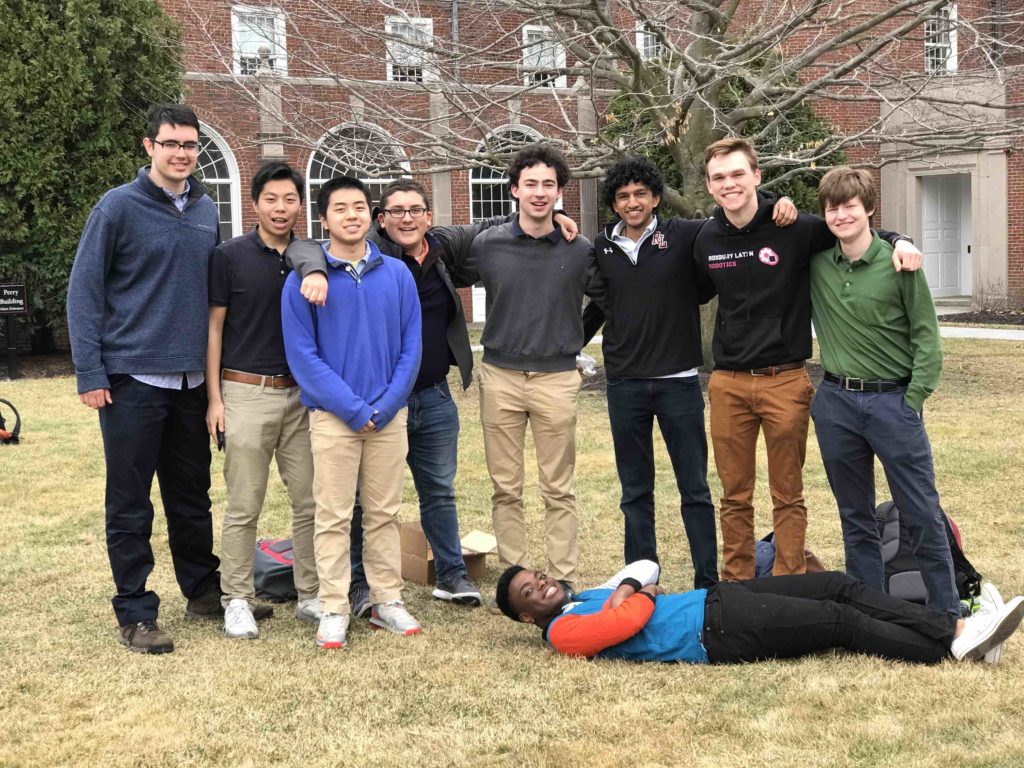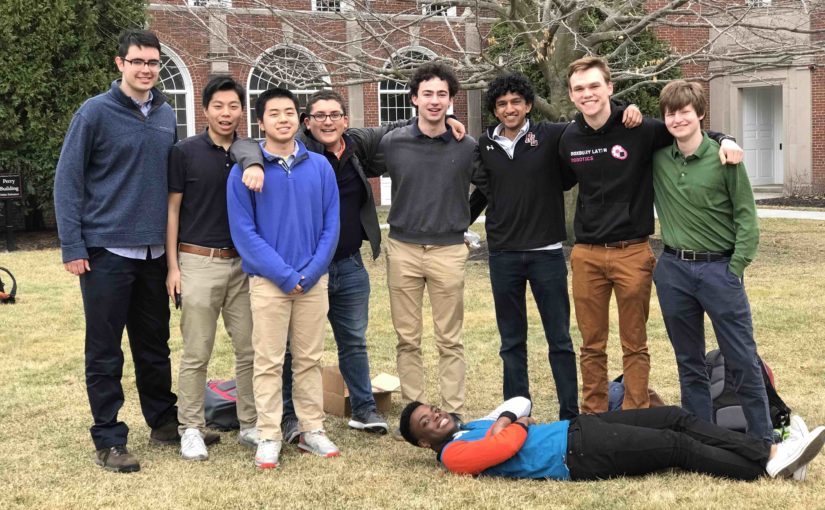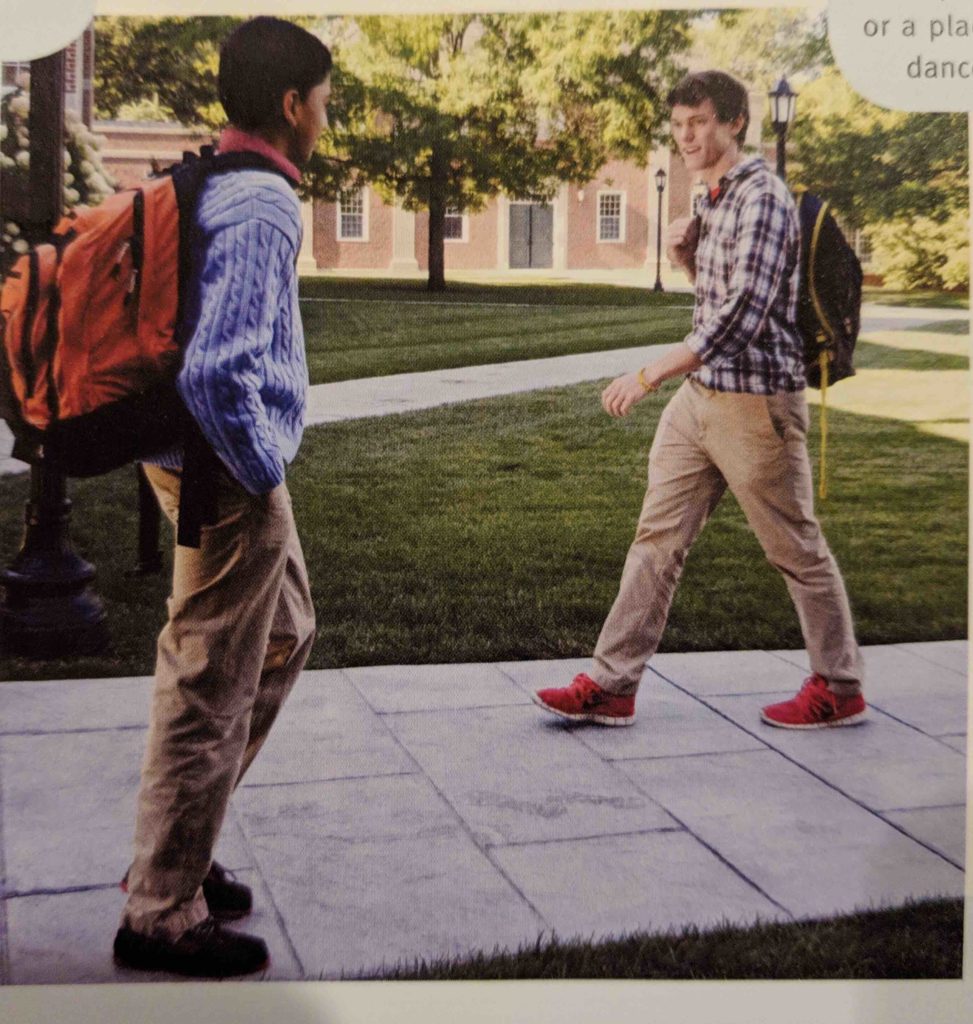By Hari Narayanan I, Editor-in-Chief
Welcome to the first virtual Tripod in the publication’s 125-year history. So far this year, I’ve spoken to you about mental health, student activism, and humor in our discourse at RL. This time, however, I think that to highlight one particular issue would be to miss the big picture and pretend this is a normal Tripod in a normal time. Instead, I am going to try my hand at a challenge facing all of us in different ways: making sense of this moment.
Before I do that, I need to give some context for the Tripod you’re about to read. In April we found out that we would not be returning to campus this year. Heading into the production of this issue, Mr. Pojman and I were concerned that for several reasons, a virtual newspaper would not be possible. For one, a newspaper requires things to have happened in the community. For another, it requires people to write about those things.
With all sports, concerts, plays, events, and end-of-year rituals cancelled, and our campus closed, it seemed unlikely that we would have the content to assemble a quality issue. And with everyone safely at home, I certainly couldn’t chase down rogue authors in the student center two weeks past the deadline demanding their articles. Perhaps most importantly, we wanted to avoid regurgitating the depressing statistics and speculative prophecies we digest every day in the media.
Perhaps most importantly, we wanted to avoid regurgitating the depressing statistics and speculative prophecies we digest every day in the media.
Therefore, the Tripod staff decided to innovate. We launched an extensive email/phone call/social media campaign to recruit writers from all six grades. We reminded boys that this was a chance to be part of school history, that years from now, when curious sixies and stressed seniors want to see what life was like at RL during the Great Pandemic of 2020, they would read this issue.
We realized that since the experience would be on a screen, we could make the newspaper photos move, Harry Potter style. In fact, we solicited videos, memes, interactive puzzles, TikToks, and more forms of media that would have been unimaginable in a black and white, paper Tripod just some months ago. We also set up an Instagram account (@tripod1645) where we shared teasers from the virtual issue to drum up excitement. With the freedom to move in these new dimensions, we were able to incorporate athletic highlights for 18-season athletes, recorded messages from departing faculty, music videos, and Rick Rolls. Yes. We will Rick Roll you in this issue. Virtual Tripods don’t happen every day– we just couldn’t pass up the chance.
A typical issue of the Tripod will have about thirty articles sourced from just over twenty individual contributors. Oftentimes, the editorial board will have to write a few last-minute, filler articles to round off the ten page layout we must cover with text and images. While students report that they have enjoyed this year’s issues, the reality has been that almost ninety-five percent of the Tripod’s readers play no part in its production.
I’m proud to report that for this fourth and final issue of the year, nearly fifty boys stepped up to write over sixty articles. In other words, roughly one in six boys at RL were involved in the production of this issue. That is by far the most student engagement with the Tripod I have seen since I wrote my first article six years ago. Furthermore, you can really tell our contributors gave it their all. The quality, depth, and diversity of articles in this issue are as good as I can remember. They are emotional, funny, pensive, and inspiring.
A typical issue of the Tripod will have about thirty articles sourced from just over twenty individual contributors. I’m proud to report that for this fourth and final issue of the year, nearly fifty boys stepped up to write over sixty articles.
Apart from the desire to celebrate our school’s collective effort, I share this information in my editorial because I think it demonstrates a wonderful, if oft-repeated, truth: adversity is an opportunity. Every time our country faces a test on this scale, some people take up hate, the vast majority hunker down, and a small minority finds an opportunity to conduct their lives in new and improved ways. This subset is often the one that leads everyone else out of the dark. I’m not even sure it requires some stroke of genius to find yourself in that camp. Rather, I think it stems from an initial decision of the will, the commitment to a cause, and the conviction that there is an opportunity here to do things better– it just needs to be found.
Second, I think we will stop taking peacetime for granted. I saw an article circulating recently explaining that if you, like former board chairman and alumnus Albert Gordon Class of 1918, were born in 1901, you would have endured WW1 around your 14th birthday, the Spanish Flu at the age of 20, the Great Depression at 29, and WW2 in your late thirties. You would have then seen your sons off to Vietnam and Korea in your fifties and lived through the Cuban Missile Crisis shortly thereafter. Perhaps we don’t always sufficiently appreciate this recent stretch in our country’s history without a near apocalypse. I will certainly never look at an afternoon with friends or watching a basketball game on TV the same way again.
That is not to say that our grief over losing our spring at RL is unjustified or selfish. On Wednesday, the noted psychologist Dr. Michael Thompson explained to the senior class the difference between concrete loss (when you lose something you already love) and abstract loss (when you lose something you know you would have loved). The latter, albeit less acute, hits in waves over an extended period of time. You never quite get over it.
Finally, a word on behalf of the Class of 2020. Our milestones and transitions have not always been smooth. We were born the year of 9/11, entered high school in 2016, one of the most politically divisive times in our country’s history, and will now graduate amidst a pandemic that has brought the world to its knees. March 12 was our last day of school on campus this year, though none of us could have known it then. That afternoon, I overheard Mr. Randall, who is completing his forty-fourth year at RL, say that only three times in his life has the world felt so surreal: the assassination of President Kennedy, the terrorist attacks of 9/11, and the coronavirus.
It wasn’t really until I heard him say that that I felt the first of many sinking waves of uncertainty that would follow over the next two and a half months. It was that subtle nausea you get when you realize what you thought was true yesterday is not true today and that you don’t know whether we’re almost through the ordeal or still in the first inning. It’s the state of knowing you have absolutely no control and the virus will run its course regardless of whether you delude yourself into thinking you understand it.
For the first time, the thought that this could be the last day I would ever be with all my classmates in one room occurred to me.
For the first time, the thought that this could be the last day I would ever be with all my classmates in one room occurred to me. As we exited that final BotBall Hall, which was the last time our school as it was constituted in its 375th year will ever gather, I lined up with whoever was in the vicinity for this picture. Half joking that this would become our grade’s “Senior Grass photo,” an annual class-wide tradition on the last day on campus for seniors, we smiled, wished each other well, and drove home to begin our quarantine.

Senior spring gives you closure. Senior spring is about knowing you’ve run the race, walking out of the Student Center after school and lounging on the Senior Grass with your friends as the sun casts a vernal glow on your face through the budding leaves. It’s an ephemeral period of peace and sanctity and rejuvenation. A time of fulfilment and clarity. We left when the trees were still bare.
But in the absence of this universal experience we will make other memories, we will find different closures, and we will each make a separate peace with the arc of our individual growth over the past six years.
For me, when I think back to late 2014, I remember looking up as a sixie at then Tripod Editor Eli Swab and thinking that he was enormous. There was something fundamentally different about the seniors – they were so much older and wiser that I just couldn’t imagine myself ever being one. I certainly never imagined that by the time my own graduation rolled around I would have written Tripod articles for a third of my life.
Senior spring is about knowing you’ve run the race, walking out of the Student Center after school and lounging on the Senior Grass with your friends as the sun casts a vernal glow on your face through the budding leaves. It’s an ephemeral period of peace and sanctity and rejuvenation. A time of fulfilment and clarity.
Six years later, I’ve realized you don’t really undergo any profound change upon becoming a senior, or any type of leader, here at RL. It’s a gradual process of learning from mistakes and building trust that takes place mostly before you get the job. After that, at least at The Tripod, it’s about showing up, making sure everyone understands the importance of their role, and cleaning up greasy popcorn bags.
Similarly, being a member of Class I at RL isn’t a process that ends in one definitive moment when you walk across the stage in Rousmaniere. That’s a lifelong affiliation and brotherhood. What graduation does give you is some degree of closure. But as I said, we’ll each find that on our own – just in different times and places. I’m finding mine here.
![]()



